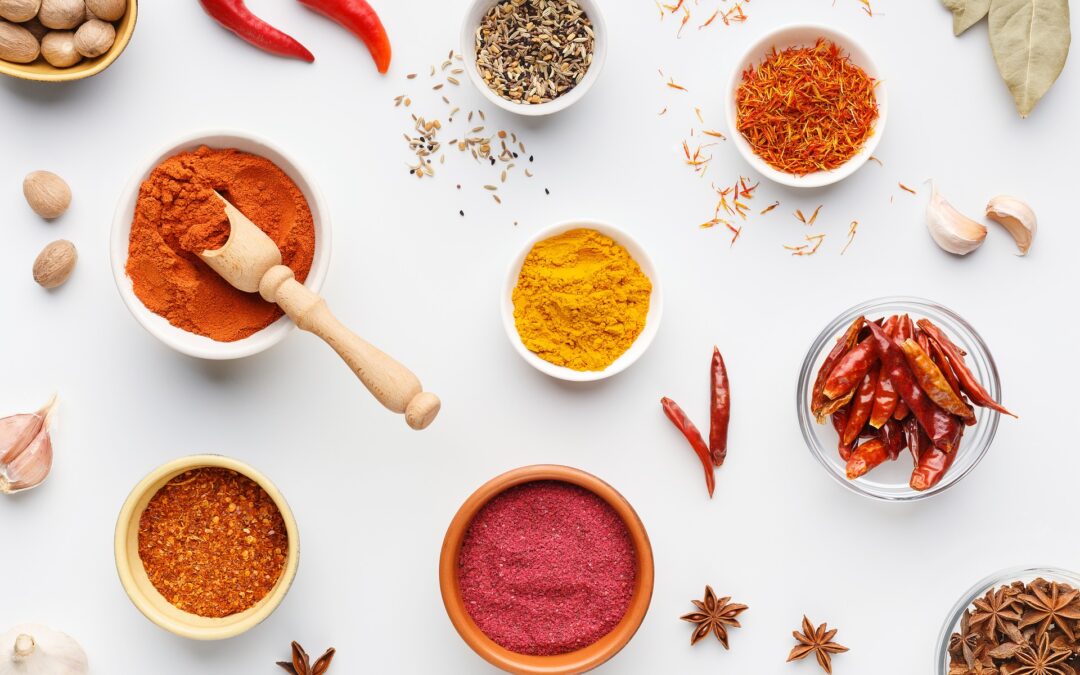Inflammation is the root of a large majority of chronic diseases. The inflammatory pathway is a defense mechanism your immune system activates to cope with bacteria, viruses, toxins, pathogens, and allergens. Inflammation can be both acute and chronic.
Acute inflammation is activated to fight infection and keep you safe. For example, when you cut your finger, your body sends inflammatory cells to the site of injury to begin the healing process. However, with chronic inflammation, our body continues sending inflammatory cells even when there is no outside danger. Some signs of chronic inflammation include:
- Frequent headaches or migraines
- Joint or muscle pain
- Brain fog, poor memory, difficulty concentrating
- Digestive issues like gas, bloating diarrhea, constipation, or acid reflux
- Skin issues such as eczema or psoriasis
- Elevated blood sugar
- Mood issues like anxiety or depression
- Weight gain, especially around your midsection
- Seasonal allergies
If you are experiencing some of the above signs, you could be dealing with chronic inflammation! When unaddressed, these symptoms can lead to chronic diseases such as heart disease, diabetes, cancer, arthritis, and bowel diseases like Crohn’s disease and ulcerative colitis, so it is crucial to take action and reduce your inflammation today!
While there are many ways to reduce your levels of inflammation—remove junk foods, ditch added sugars, incorporate omega-3-rich food sources, improve quality of sleep, and reduce stress, to name a few—the purpose of this article is to discuss the ways we can use powerful herbs and spices to improve your health and longevity.
TOP 7 ANTI-INFLAMMATORY HERBS & SPICES
1. GINGER
BENEFITS: Ginger is a super root that when consumed has antioxidant properties, helps to reduce inflammation in the body, is very effective at reducing pain and nausea, and aids in improving heart health, reducing blood sugar and cancer, and supporting brain health.
HOW TO USE IT:
- Add washed and sliced ginger root to hot water and boil for 5 minutes for a warm tea.*
- Use peeled and grated ginger in stir-fries, rice dishes with sesame seeds and seaweed flakes, or make a ginger marinade or salad dressing with coconut milk and garlic.
2. ROSEMARY
BENEFITS: Rosemary is rich in antioxidants, it also helps to decrease the formation of cancer-causing HCAs when grilling meats. If you marinate your protein source with fresh or dried rosemary, it helps to protect your body against the carcinogens that can form when protein is exposed to heat. Rosemary also helps to lower cortisol levels when inhaled–cortisol is one of our stress hormones. We like to diffuse rosemary essential oil when we need a little extra calm in our day (*please make sure to use quality therapeutic grade essential oil brands like doTERRA, Young Living, and Mountain Rose Herbs for example). Rosemary has also been shown to help improve memory! Who doesn’t want a better memory?!
HOW TO USE IT:
- Rosemary pairs well with chicken and other poultry, game, lamb, pork, steaks, and fish, especially oily fish like wild-caught salmon.
- Add to grains, mushrooms, onions, peas, potatoes, and spinach, or by infusing it in your favorite olive oil for a veggie dressing.
- Add to egg scrambles, we like to grind up rosemary needles and add the ground version to omelets, soups, and sauces so you get the benefits of the herb without choking on the needles.
3. TURMERIC
BENEFITS: Turmeric is a root with antioxidant properties used for centuries in India as both a culinary and medicinal ingredient. Most importantly, it contains curcumin, which has been shown to help promote a reduction in inflammation, reduce joint swelling and stiffness, and have the ability to support our natural detoxification processes in the liver.
HOW TO USE IT:
- Add washed, peeled, and grated turmeric to avocado oil in a pan and saute veggies
- Add grated turmeric to roasted vegetables or make a tea similar to the ginger suggestion above*
- Blend into your favorite smoothie
4. CINNAMON
BENEFITS: Cinnamon has a high concentration of antioxidants and has been shown to help increase the production of anti-inflammatory proteins the body. It is also associated with better blood glucose control.
HOW TO USE IT:
- Add cinnamon to soups and stews—add a pinch to chili as a “secret ingredient”
- Add a sprinkle to oatmeal, sweet potatoes, and sautéed apples
- Sprinkle it on top of your tea latte with cashew milk for a sweet replacement for sugar
5. YARROW
BENEFITS: Yarrow, a flower related to chamomile, and has been used since ancient times by cultures around the world. Traditionally, it’s been consumed as a tea, applied to the skin to treat wounds, or cooked in order to reduce inflammation. Yarrow has been particularly helpful to the digestive tract, aiding in reducing bowel irritation and menstruation pain. Using yarrow has also helped to relieve anxiety and insomnia.
HOW TO USE IT:
- Yarrow leaves and flowers can be dried and ground into a spice.
- Add the leaves and flowers to salads, soups, stews, and other dishes as a leafy vegetable or garnish.
Since yarrow is also often used to help promote blood clotting, people with heart diseases, on prescription blood thinners, or that are pregnant should avoid the ingredient or speak to their dietitian or doctor before using it.*
6. FENUGREEK
BENEFITS: This spice’s leaves and seeds help reduce rheumatoid arthritis, heart disease, and type 2 diabetes. Fenugreek extract and oil possess antimicrobial, antioxidant, and antidiabetic activities; have been shown to improve digestive problems, lower cholesterol, promote breast milk production in women; helps to treat wound, skin, and scalp issues; and may enhance exercise performance!
HOW TO USE IT:
- Fresh and dried fenugreek leaves can be used to garnish dishes with sauces, curries, vegetable dishes, and soups.
- Use the seeds as a dry rub for meats
- Drink steeped leaves in water as a warm tea
7. CHILI PEPPERS
BENEFITS: Chili peppers contain an ingredient called capsaicin, which gives it that spicy kick, and has been researched for its effects on pain relief and anti-inflammation. They also have been shown to improve digestive health, reduce blood pressure, and help to burn body fat!
HOW TO USE IT:
- When using fresh chili peppers, thinly slice the pepper and add it to soups or stews
- Add chili peppers on top of grilled or roasted foods such as pork, chicken, or whole grilled fish.
Not only do these seasonings add flavor to our dishes, these small but mighty herbs and spices have the power to reduce inflammation in your body, reduce disease, and help to heal our bodies inside out! Nourishing your body is one of the greatest forms of self-care, it’s important to enjoy all the flavor nature has to offer!
Your Online Dietitian Coach, Ashley Anderson MS, RDN, LDN, CPT, PN1

Your Online Dietitian Coach, Rachel Brown, RD, IBCLC, CDECS, MBA

***Click I’M READY to fill out our coaching application to schedule a complimentary discovery call TODAY! A healthier you is just a call away!***
Resources:




